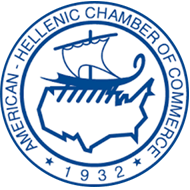Postcard from Strasbourg
Cher Grégoire,
Could the European Court of Justice (ECJ), quietly tucked away in Luxembourg, have become the EU’s sexiest institution? Having taken centre stage in the latest episode of the Brexit psycho-drama, where the ECJ’s role in policing the Northern Ireland Protocol has become the latest red line, it now finds itself at the heart of the dispute with Poland on the primacy of EU law and accusations that it sticks its nose into areas it doesn’t have competence. Prime Minister Morawiecki came to Strasbourg, like Viktor Orban before him, with no intention of bowing to MEPs howls of protest. He no doubt won plaudits from his supporters back home when he told the House “I reject the language of threats, hazing and coercion. I do not agree for blackmail to become a method of conducting policy towards a member state. That’s not how democracies do things”.
A lesson in democracy no doubt further incensed MEPs, who secretly admit that there’s not a huge amount they can do. Their decision this week to take the Commission to court (the ECJ once again) for its failure to act simply pits EU institutions against each other and delights its opponents. The EPP had opposed this line of action on the grounds it politicized the Court, which may be a case of closing the stable door once the horse has bolted. Threats of cutting off voting rights under Article 7 have been shown to be toothless in the parallel dispute with Orban. Holding back recovery funds may prove the ultimate threat, but it won’t be quick and the so-called conditionality mechanism won’t be triggered until our friends in the Court have ruled on its legality. This path comes with its own risks and it was no coincidence that Warsaw this week threatened to delay or weaken the Fit for 55 package: the EU’s entire agenda risks being blocked if the dispute escalates further. Asked how the crisis would end, one Polish official is quoted as saying “it looks like they’ve stopped playing poker and started to play Russian roulette”.
“Polexit” has now entered the EU lexicon, not to be confused with “exit poll” which shows that the majority of Poles want to remain in the club. Morawiecki also said in his speech that they weren’t planning on following the Brits, defiantly stating “we are here, we belong here and we are not going anywhere”. Brussels must secretly be hoping that voters solve the problem for them by voting out Orban next year and the Law and Justice party in 2023.
Another debate attracting more heat than light was on the Farm to Fork strategy on how to make food production more sustainable. Accusations flew around the chamber of dirty lobbying by the farmers’ organizations and dirty tricks by the Commission Vice President. The EPP went in hard on Timmermans, releasing a hilarious photo-shopped image of him apparently burying in a cabbage patch reports that showed agrichemical reduction targets would cut yields. In the Green corner, the focus was on leaked copies of the lobbying tactics of the farm lobby, who in turn said they were no different to the tactics employed by NGOs and Green groups. The result of all this squabbling was that the ambitious targets on pesticide and fertilizer reduction all went through but the EPP got their amendment calling for impact assessments on all new legislation.
The week ended with the announcement that the Russian opposition leader, Alexei Navalny, will be this year’s Sakharov prize winner. A constant thorn in the side of Vladimir Putin, he was poisoned and then thrown in jail for exposing the corruption of the regime. Like most past winners he sadly won’t be in Strasbourg to pick up his prize in December. With last year’s prize going to the Belarus opposition, Putin must be starting to think he’s being picked upon. There was also an honorable mention of the runners-up, a group of Afghan women whose basic rights are already under threat from the Taliban.




